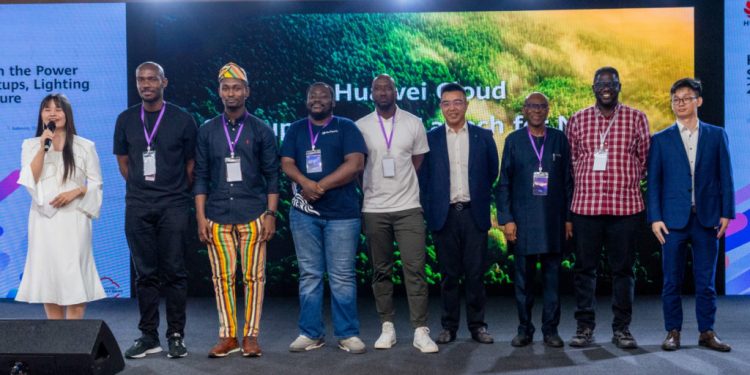Huawei Cloud has announced a significant investment of $10 million in cloud credits to support 100 Nigerian startups over a two-year period, as part of its commitment to empower the country’s startup ecosystem and foster innovation and growth on Huawei Cloud.
The announcement was made at the Huawei Cloud Startup Summit in Lagos on April 3, 2024, where the company hosted startups from Nigeria’s vibrant tech ecosystem. Startups selected for the program will have access to cloud credits of up to $150,000 each, enabling them to leverage Huawei Cloud’s global infrastructure and ecosystem spanning 177 countries and over 50 hubs worldwide.
Hugo Hu, Director of Huawei Cloud Nigeria, emphasized the company’s focus on supporting the Nigerian startup ecosystem, stating, “The Cloud investment is targeting the startup ecosystem in Nigeria. Huawei Cloud is a global cloud vendor.” Huawei Cloud also aims to reduce the cost of cloud services by 40% for startups in Nigeria.
With Nigeria consistently ranking among the top countries in Africa for startup investments, Huawei Cloud sees significant potential in the country’s burgeoning tech scene. The surge in demand for cloud services, particularly since the onset of the COVID-19 pandemic, has further fueled the company’s commitment to supporting startups in Nigeria.
Dotun Adekunle, Senior Vice President of Flutterwave, highlighted the importance of cloud services for companies’ competitiveness in the global market, noting, “We wouldn’t run Flutterwave efficiently without being on the cloud.”
Paul Adigu, Ecosystem Director of Huawei Cloud Nigeria, outlined three key initiatives to achieve the program’s objectives: leveraging an advanced cloud platform, fostering startup talent development, and providing essential business resources
As part of its broader strategy in Nigeria, Huawei Cloud aims to deepen its footprint in the country’s digital transformation journey. The company plans to launch a local cloud in Nigeria in 2024 and has already established 88 Availability Zones (AZs) in 30 regions globally, with further expansion on the horizon.










